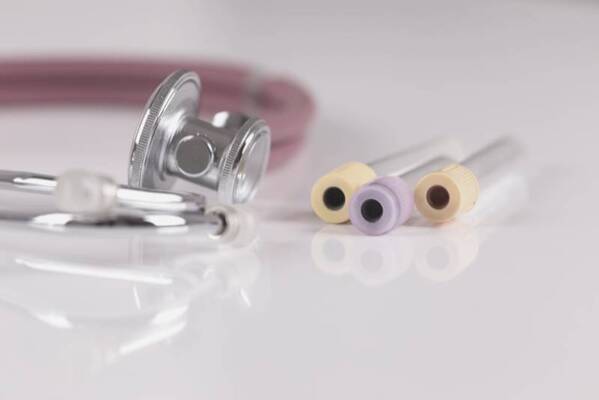|
In the midst of our bustling lives and convenience-oriented diets, it's crucial to shed light on the importance of heart health. February is Heart Health Awareness Month, a timely opportunity to explore comprehensive strategies, including functional medicine, for cardiovascular well-being. It's essential not only to focus on managing cholesterol but also to examine the potential negative impacts of relying solely on medication. Flourish's Approach to Addressing High Cholesterol:
Approaching heart health with lowering cholesterol as the goal, here are some considerations and healthy tips.Understanding Functional Medicine:Functional medicine, a holistic approach, seeks to address the root causes of health issues rather than merely treating symptoms. In the context of heart health, functional medicine takes into account various factors such as genetics, lifestyle, nutrition, and environmental influences to create a personalized plan for prevention and treatment. Tips for Lowering Cholesterol:
Nutrition Tips for Heart Health:
Considering Medication's Negative Impact: While medications can play a role in managing cholesterol, it's essential to acknowledge potential downsides. Medications may carry side effects, ranging from muscle pain to liver issues. Furthermore, relying solely on medication may lead to a false sense of security, potentially neglecting lifestyle changes that are crucial for long-term heart health.
At Flourish Medical + Wellness, we want you to thrive. That’s why we commemorate Heart Health Awareness Month and invite you to commit to prioritizing cardiovascular well-being. Functional Medicine, combined with lifestyle changes and nutritional adjustments, provides a holistic approach to heart health. Additionally, considering the potential negative impacts of relying solely on medication encourages a more balanced approach. By making informed choices, we can work towards reducing the risk of heart disease and fostering a healthier, happier life. Remember, your heart deserves comprehensive care, so take steps today and flourish tomorrow. Contact us to discuss your health concerns.
Muscle TestMuscle Testing, also known as Applied Kinesiology (AK) or Nutrition Response Testing (NRT) is done through testing the response of the body’s nervous system. NRT analyzes the flow of energy at different areas of the body to help us better understand how every organ is functioning as it relates to the state of health of an individual. With NRT/AK the practitioner gently contacts different areas of the body with his/her hand. With the other hand, the practitioner will test the strength of the muscle of the patient’s arm. If the area/organ being tested is under stress, the nervous system responds by reducing energy to the arm muscle and the arm weakens. The weakening of the arm muscle signifies underlying stress or dysfunction. How can this possibly work? Consider what happens in the body with hypothermia. The extremities have the most damage because the body pulls all its energy to the core to protect the life-sustaining organs. The same concept applies when we make contact with a stressed organ/area, the body pulls energy to the organ being tested and the patient’s arm will weaken. Organic Acid TestAre you experiencing…
The Vibrant Organic Acids panel uses the most advanced mass spectrometry technology to assess 75 metabolic markers in urine. It includes 11 subpanels and provides accurate evaluation of intestinal microbial overgrowth, detoxification, mitochondrial markers, neurotransmitter metabolism, glutathione status, fatty acid metabolism, and inborn errors of metabolism. (We’ll share an explanation of each during your test results visit.) Environmental Toxin TestAn additional method of understanding the state of your physical health is with urine toxin testing by Vibrant Wellness. This urine test provides an in-depth look at the toxic burden on your body. This test detects:
At Flourish, we support you on your wellness journey by offering a holistic approach to health and healing. We address physical, emotional, and spiritual wellness as we know all are important to your ability to flourish. Call us to discuss our expanded testing options and to schedule a consultation.
How toxins can enter our body:
Why it's important: Supports a Healthy Immune SystemToxins can weaken our immune system, making us more susceptible to illness and disease. A regular detoxification program can help to remove these harmful substances from our bodies and support the functioning of our immune system. This can help to boost our overall health and reduce our risk of developing serious health problems. Helps Maintain a Healthy WeightMany environmental toxins are stored in our fat cells, leading to weight gain and difficulty losing weight. Detoxifying your body can help to eliminate these toxins, allowing your body to function more efficiently and promoting weight loss. Improves Energy and Mental ClarityEnvironmental toxins can also affect our energy levels and mental clarity. A detox can help to remove these toxins, allowing us to feel more energetic and focused. This can have a positive impact on our daily lives, allowing us to be more productive and efficient. We offer Total Toxin Testing here at Flourish. Supports Better DigestionToxins can also disrupt the normal functioning of our digestive system, leading to symptoms such as bloating, gas, and constipation. Detoxifying your body can help to improve the functioning of your digestive system, promoting better digestion and reducing symptoms. Reduces Risk of Chronic DiseasesResearch has shown that exposure to environmental toxins can increase the risk of chronic diseases such as cancer, heart disease, and autoimmune disorders. Detoxifying your body can help to reduce your risk of developing these conditions by removing harmful substances from your body. Reducing our exposure to toxins can help us to maintain optimal health and reduce the risk of serious health problems. At Flourish, we offer a helpful list of daily, weekly, and monthly Detox Tips. Regular detoxification of your body from environmental poisons is essential to maintaining optimal health. By supporting your immune system, promoting weight loss, improving energy and mental clarity, supporting better digestion, and reducing the risk of chronic diseases, a detox can help you feel your best and lead a healthier, more fulfilling life. Consider incorporating a detox program into your routine to take control of your health and protect yourself from the harmful effects of environmental toxins. Get your Daily Toxin Handout>>
Testosterone is a very important hormone for both men and women. Levels begin to decrease in women 10 to 20 years prior to menopause. In men, levels drop each year beginning in the 20’s - 30’s. There are significant consequences with regard to aging because of declining testosterone levels. There are testosterone receptors in most cell types in the body, making it a vital hormone for maintaining youthfulness and vitality. Our goal is to optimize your levels of testosterone, not just replace some of what is lost. In men, we achieve levels betweens 1000 and 1200, which is the upper quartile (25%-ile) of the normal range. Most men in their thirties and above are in the 200 to 500 range. A normal range for women is not well established. After treating over a million women in this country, researchers at BioTe have found that women feel the best, with the least side effects, at levels from 150 to 250 or higher. This can vary as every person is unique and special. Blood levels will be checked 2-5 weeks after pellet placement to ensure that the optimal range is achieved. If levels are below optimal, we will provide a ‘boost’ with your office visit follow up at no extra charge. In addition, testosterone prevents and treats osteoporosis, protects the heart, lowers blood sugar, and decreases the risk of Alzheimer's Disease and breast cancers. Learn more about the Bioidential Hormone Replacement Treatments we offer at Flourish. Contact us to make a consultation.
Early Detection and Screening GuidelinesThe current methods of early detection and breast cancer screening are flawed. Some detection methods are not effective and cause unnecessary fear and stress. And although there are risks with obtaining mammograms at a young age, for young women, early detection is needed. We are seeing cancer rates rise in younger age groups. While 3D offers a clearer picture, is more accurate, and the new standard for screening – the cost is not always covered by medical insurance plans and the levels of radiation are much higher. The 2D traditional method is known for high rates of false positives and false negatives. It also causes radiation exposure, thus, making it ineffective screening method. Another option is thermography. This method uses an infrared camera to detect heat and blood flow. Thermography is free from health risks, is best for dense breast tissue cancer detection, and for those under 50 years of age. The cost for the screening is around $150-200 dollars. Unfortunately, it can take years for screening recommendations to change. We are seeing a rise in breast cancer rates in young women, but screening recommendations are not reflecting that. Breast self-exams and thermography may be the best options. A helpful resource can be found on the Centers for Disease Control and Prevention website. Breast Cancer Screening Guidelines>> Risk Factors You Cannot Control
8 Risk Factors You Can Control
Prevention Steps
There is not a perfect way to detect breast cancer early without increasing risk; that’s why prevention is so important. We suggest regular exercise, eating organic foods, avoid and reduce toxins, conduct self-exams, and know your body. Listen to your intuition, and if you think something is wrong – visit your doctor.” – Jackie Tewes At Flourish Medical + Wellness, we emphasize the importance of optimizing God’s design of the human body to provide natural healing and protection. Our individualized medical care will allow you to strengthen your body and enable it to function exactly how it was made to. We strive toward wholeness: being well in mind, body, and spirit. Contact us with your health concerns and schedule and appointment.
Young ChildrenIndependent and active! Young children get into everything their curious hands can reach. Home safety is as important as hygiene. Check your home for hazards like stairs, water zones like pet bowls, and small toy choking risks. Let's listen to the advice of medical and dental professionals for preventative measures and childhood wellness recommendations. Steps like brushing their teeth, not overusing humidifiers, frequent hand-washing, and covering coughs are daily essentials in the well-being of your young child. TeenagersEssentials for the healthy teenager include eating right, staying active, and getting enough sleep. Easier to say than to do.... or enforce. But planning ahead and being consistent might guide your teen toward making healthy choices naturally. Offering healthy food options at home, taking family hikes, spending time unplugged in nature, and enjoying family meals together will help to create a lifestyle of wellness. Mental and emotional health play an important role in the aging process for tweens and teens. Keeping their emotional needs on your radar and being aware of drastic changes in mood is essential. Reach out to a medical professional as a resource. Supporting and encouraging your teen to become involved in sports and physical activity and visiting your dentist and doctor regularly are two great steps toward healthy aging, too. 20-SomethingsOh so wise and yet, so young - twenty-year olds feel free and youthful. But, now is the ideal time to adopt good habits that will lead to healthy aging. Establish healthy sleep habits now for physical and mental well-being. Learn to cook healthy meals at home, maintain an active lifestyle, and protect your skin with SPF every day! These habits are a great way to set the wellness course. In your twenties, you should get a physical exam every year and make your health a priority. Knowing your limitations on social activities and reducing stressful situations are needed for all age groups, but at 20-something your energy seems boundless, so you may need a reminder to practice moderation. Mid 30s-40sYour mid-thirties can be a milestone for many reasons. You might be enjoying career advancement and a larger social circle. Perhaps you've established an active lifestyle and are making better eating choices. While these things are essential for healthy living, your body is going to age at a different rate and make some major shifts in the coming years. Awareness and strategy will help you stay the course. Your diet should include more high-fiber foods as they will give you fewer years of biologic aging. And bone density is formed in our younger years, so by age 30 new bone formation is completed. We recommend annual wellness visits and labs to check your vitamin D level. Vitamin D turns into calcium in the body. The exercise routine you currently enjoy may need to change. Muscle mass decreases 3-8% per decade after age 30, so you should be adding strength training to your routine three times per week to boost your metabolism, burn fat, and remain lean. Male and female hormonal changes can begin as early as age 25, but now is when you need to pay extra attention. Many symptoms and discomforts could be a sign of increased risk for disease. Schedule a consultation with us and learn more about recommended hormone treatments and live the healthy full life God intended for you. 50+Degenerative conditions can start earlier in life, but typically 50 is the age when we see and feel dramatic changes in our body. It serves as a reminder of the importance of wellness exams for early detection and symptom diagnosis; and reinforces the value of maintaining an active lifestyle. This generation (Baby Boomers) has more 55+ active living communities available to them than any elderly generation in the past. Great resources are available to them, and the options are vast. We invite you to learn more about osteoporosis and its effects on aging. Two Important Factors on Aging(1) Prevention There is a reason why many health and medical insurance plans include free annual screenings and wellness exams. It's because they work. Early detection and diagnosis significantly improves your health and quality of life. (2) Toxin Exposure At any age, we should be concerned about our exposure to toxins. We share some frightening insights in this blog post. You may want to review it! We list specific information on the environment we are exposed to. Did you know toxins are fat soluble? It means they are stored in our fat and can remain in our bodies for years, or even decades. This causes changes in our bodies and greatly affects our aging process. Our body cannot keep up the fight without our help. Therefore, we need to avoid new exposure and actively work to remove the old toxins. Not Just Great Advice: These 10 Tips wil help maintain a healthy lifestyle, but they focus on the "staying" healthy concept. We want ot help you "start" a healthy lifestyle. The post is very inspiring and nicely outlines each area of our life as a specific focus. Actively making healthy choices in the exercise, diet, social, and mental areas of our life will support wellness. At Flourish, we'd add a spiritual focus to bring wellness into the fullness of life as God intends it: wholeness. Learn more about our team approach to your health and wholeness. And contact us with questions today.
|
Blog Categories
All
|
|
Flourish Medical + Wellness (FMW)
14070 Commerce Ave NE, Suite 300 Prior Lake, MN 55372 Phone: 952-208-7029 // Fax: 952-214-0866 Clinic Hours Monday through Thursday 8:30 - 3:30 "May you be blessed by the Lord who made heaven and earth." Psalms 115:15
|
|
©2021-2024 Flourish Medical + Wellness
|






